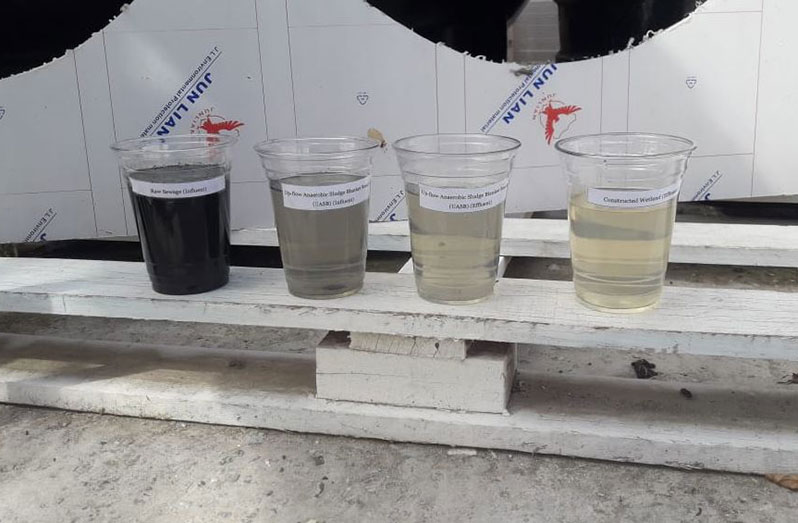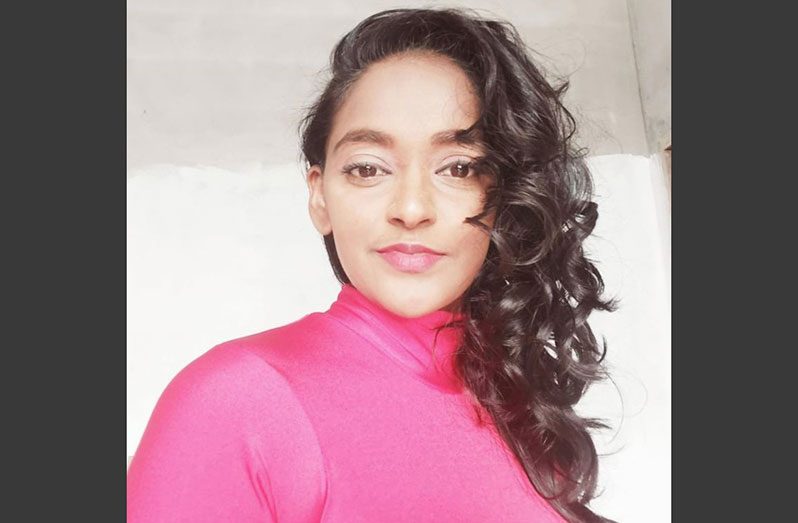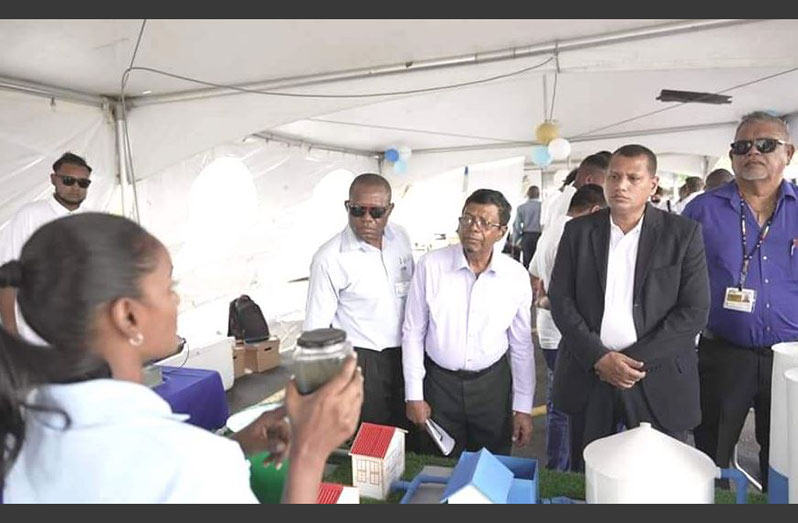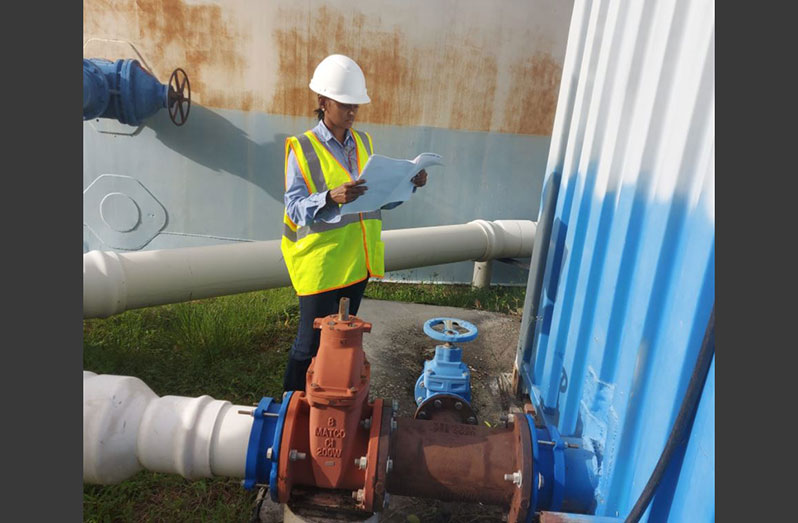Meet ‘Water Engineer’ Amanda Ramgobind
THIRTEEN years ago when Amanda Ramgobind worked in the Sanitation Department of the Guyana Water Inc (GWI), she had an opportunity to see first-hand how sewage was being discharged into the environment without any form of treatment; how it affected the aquatic environment and the sicknesses and diseases associated with being in contact with untreated wastewater.
As she managed the daily operations of the Georgetown sewer system, she developed a passion for wastewater treatment. She thus began researching it at the same time that she was pursuing a Bachelor’s Degree in Civil Engineering at the University of Guyana (UG).

Her final-year project at UG was the re-engineering of the Tucville Sewer Station into an efficient wastewater treatment facility.
“After completing my BSc, I continued researching, doing online courses and joined various webinars on wastewater. At this stage, I was intrigued about the resources that can be recovered from wastewater treatment, such as biogas, which can be converted to thermal and electrical energy, nutrients which can be used as fertilizer in agriculture and reclaimed water which can be used for potable and non-potable purposes, such as flushing of toilets, irrigation, cleaning,” Amanda shared with Pepperpot Magazine.
So in 2018, she pursued a Master’s of Science in Water and Wastewater Engineering at Cranfield University, UK, where she was exposed to a wide range of innovative treatment technologies used in different applications. It was really no surprise to her when her group won the David Neil- Gallacher Prize for the Best Design Group Project, awarded by British Water.
After completing her Masters, Amanda came home and continued to work at GWI, now being the Water and Wastewater Engineer attached to the Programme Planning, Design and Implementation Department of the company.
“A pilot wastewater Treatment plant was designed and set up at Tucville Sewer Station; it treated 3-5 m3 of domestic wastewater per day (black and grey water),” she related.
The process entailed physical treatment by screening, using a submersible backwash screen, biological treatment using an up-flow anaerobic sludge blanket (UASB) reactor, followed by a constructed wetland, and disinfection process.
According to her, the selected treatment processes allowed for resource recovery such as energy, nutrient, and reclaimed water using passive and eco-friendly technologies. “This pilot wastewater treatment plant allows Guyana to fulfil local and international obligations, while achieving the Sustainable Development Goals. A scaled-up design was completed, and we are now waiting on funding for its implementation.”
While Amanda continues to follow her passion in wastewater treatment, research is ongoing on a sludge- treatment plant for faecal sludge. She’s also working on several water-treatment plant projects, the rehabilitation of Friendship water treatment and expansion of Better Hope and Eccles Water Treatment Plants.
“I have encountered many challenges and roadblocks along the way,” she reflected. “This has helped me to develop patience and build character. Giving up is definitely not an option for me and I believe with God anything is possible and if God leads [you] to it, he will definitely lead you through it victoriously.”
Amanda said it doesn’t matter which school someone attended or their social or economic background. “Just believe in yourself and persist until you see the manifestation of the promises of God for your life.”




.png)













